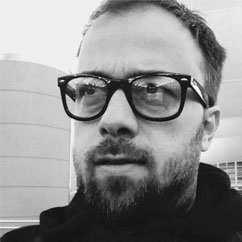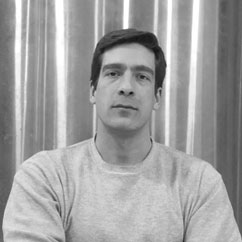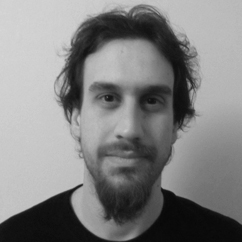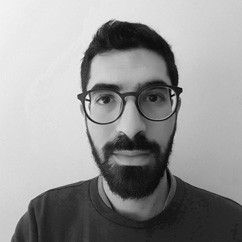
Ingmar Sandberg, PhD
Ingmar received his doctoral degree in Space and Plasma Physics from Uppsala University, Sweden and visited as guest scientist the Russian Academy of Sciences and the University of Marseille. He has worked as research associate in Bochum University, Aristotle University of Thessaloniki, National Technical University of Athens, National Observatory of Athens and Institute of Accelerating Systems and Applications. During the last decade, he has contributed and managed various R&D projects of European Space Agency related to the calibration of space radiation monitors and to the analysis, modelling and forecasting of space environment.

Constantinos Papadimitriou
Constantinos has worked as a software developer in the private sector and as a research associate in top academic institutions in Greece. He specializes in data curation and pre-processing, time-series analysis and statistical modelling and has extensive experience with the application of a wide range of methods, ranging from information-theoretical measures to machine learning algorithms. He is a member of the calibration and validation team of ESA Swarm electromagnetic data and contributes to the development of the European Space Radiation Environment Model. His work has been published in many leading international academic journals.

Sigiava Aminalragia-Giamini, PhD
Sigiava has worked since 2012 as a research associate in multiple scientific projects in the fields of Space science and Materials science. He has collaborated with institutions such as the National Observatory of Athens and the National Center for Scientific Research “Demokritos”. His areas of interest are signal and time-series analysis, probabilistic modelling of space weather phenomena and the application of machine learning and artificial intelligence methods. He has developed the (VESPER) model which is the solar proton component of the European Space Radiation Environment Model. 42 is one of his favorite numbers.

Antonis Tsigkanos, MSc
Antonis Tsigkanos received his BSEE degree from the Electrical and Computer Engineering School of the National Technical University of Athens. Currently, he is a PhD candidate in the Dpt. of Informatics and Telecommunications, NKUA. His current research interests include on-board payload data processing systems, SoC design, dependable and reconfigurable computing and Software Hardware Co-Design. He has published in international peer reviewed publications and participated in numerous R&D projects in the EU space sector.

Georgios Provatas, PhD
Georgios Provatas received his doctoral degree in Nuclear Physics from the National Technical University of Athens, Greece and served in the Tandem Accelerator Laboratory of the Institute of Nuclear and Particle Physics of the National Center for Scientific Research “Demokritos” over the last years. His research activities focus on the research and applications of Ion Beam Analytical techniques as well as on the development of experimental instrumentation. He has collaborated with many Greek Universities and Research Institutes. During the last 3 years, he has performed the numerical calibrations of space radiation monitors on board several space missions, in the framework of ESA projects.

Zafar Iqbal
Zafar studied Engineering & Computer Science at Oriel College in Oxford, and Communication Design in Central Saint Martins in London. He has worked for more than 20 years as a programmer in the United Kingdom and Greece, both for large private companies such as ZDNet/CNET and for top academic institutions, such as the National Technical University of Athens. His areas of expertise include cyber-physical hardware and software systems with an emphasis on robust, modular, secure and scalable software components, phygital experiences, image and video processing, internet applications and content management systems. He also has extensive teaching/mentor experience at international events and workshops, and has published two scientific papers on programmable modelling environments. He has used his programming skills on a varied number of science and art projects and performances, and in 2016 he was included in the European Top 50 Maker list.